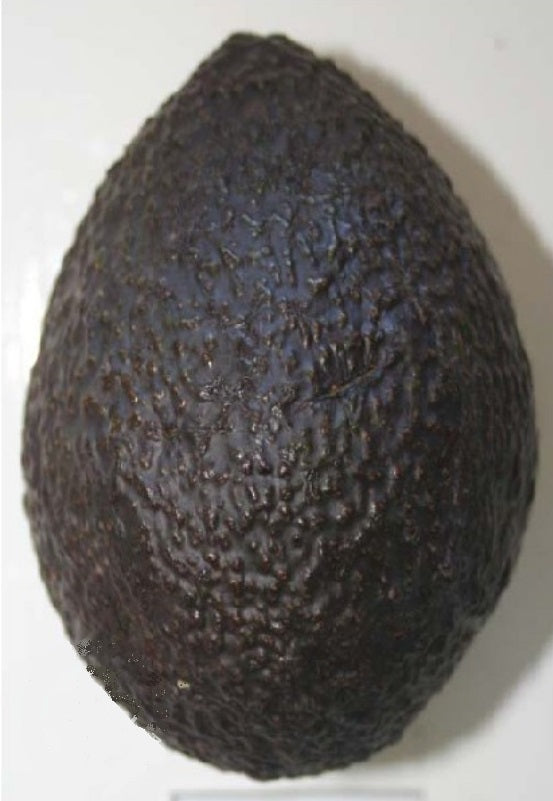Avocado - Frazer - Semi Dwarf - summer ripening
- Regular price
-
$120.00 - Regular price
-
- Sale price
-
$120.00
Couldn't load pickup availability
Frazer is a fantastic semi dwarfing B variety, ideal for the home gardener. The tree is quite unusual, which has a more crawling/spreading habit than other varieties, and has a very bushy canopy with long narrow leaves. It produces lemon shaped avocados, that turn black when ripe. Inside, the flesh is tasty, with similarities to Hass, with a high oil content, and little to no fibres.
If you are seeking a semi dwarf A + B combo, pair Frazer with either Esther or Pinkerton.
- Type: Hybrid
- Flower Type: B
- Colour when ripe: Black
- Shape: Lemon/rounded diamond
- Fruit size: Medium
- Seed Size: Medium-large
- Fruit quality/taste: Very good
- Harvest season: Summer (can vary depending on local climate)
Frazer is a B flowering type. Avocado trees in our climate are self fertile, but produce more fruit if 2 are planted near each other with opposing flower types. In this case, best planted near a Reed, Hass, Esther, Pinkerton, Mexicola or Mexicola Grande, or any other A type tree.
Avocado trees are generally easy to care for, but here are a few tips to help ensure your tree thrives:
-
Plant your tree in well-draining soil in a sunny location. Protect from wind and frost when young.
-
Water your tree regularly, but be careful not to over-water. Avocado trees prefer to be kept evenly moist, but not waterlogged. If planting in a clay soil, it is important to either create a mound, or build a raised planter box to plant your tree into. This helps keep the sensitive feeder roots out of the wet zone.
-
Fertilise your tree with a balanced fertiliser twice a year, once in the spring and once in the summer.
-
Prune your tree regularly to remove any dead or damaged branches, and to shape the tree to promote good fruit production.
- Avocado trees love mulch! Mulching around your tree helps regulate moisture, keep weeds away, breaks down into food for the tree, and creates a very healthy balance of good bacteria and fungi, closer to their natural habitat.




